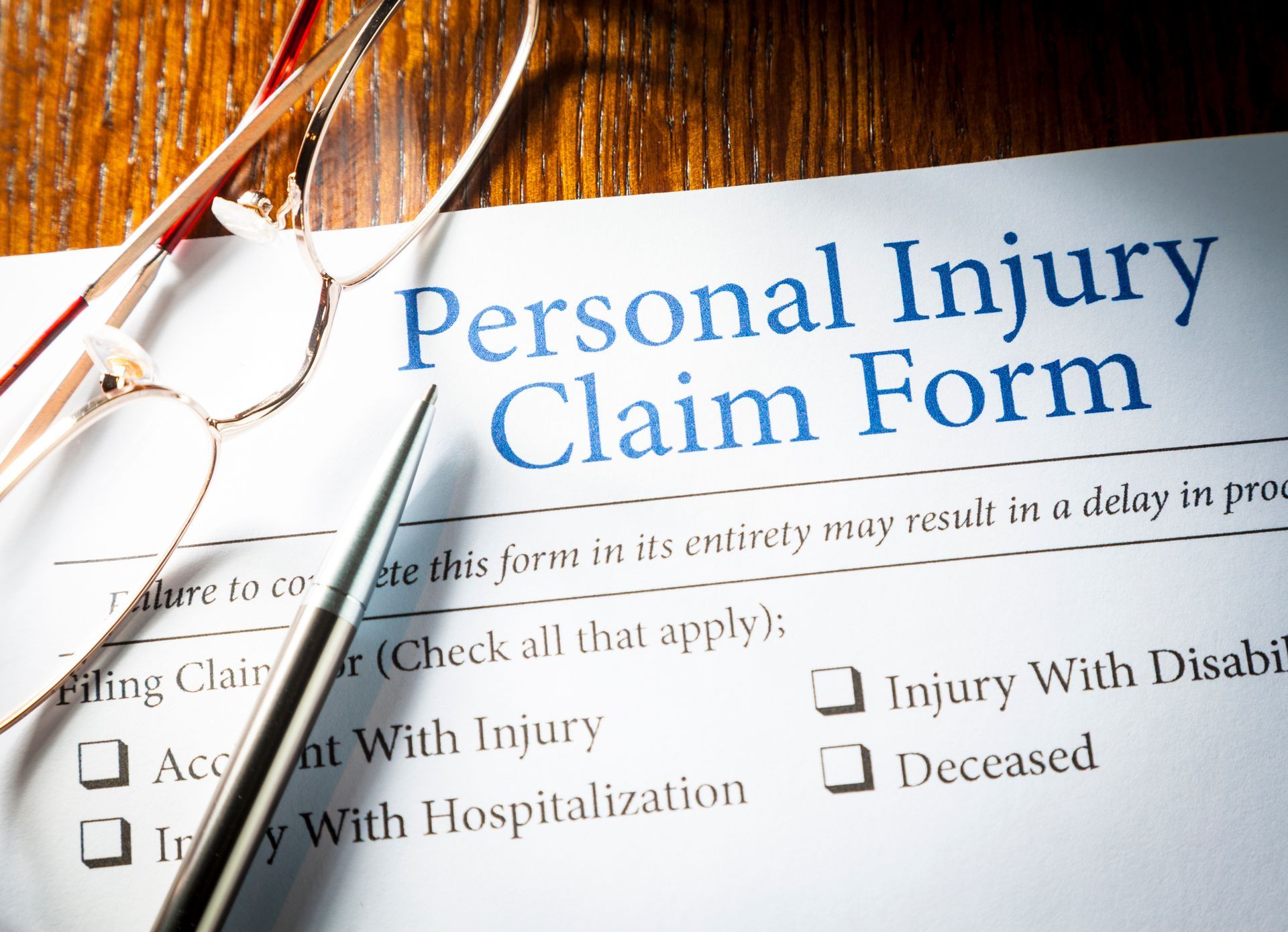Kmiec Law Offices, SC Blog

As dog bites and dog attack injuries can be complicated, you should hire an experienced dog bite attorney where you or a family member is injured or killed by a dog attack. With postal carriers and delivery drivers making more home deliveries, dog bite claims are frequently complicated by worker’s compensation laws which require reimbursement to the worker’s compensation carrier of a certain amount of your dog bite recovery. Also, worker’s compensation laws allow benefits equal to one-year of your wages for permanent scars and disfigurement under certain circumstances. If you are injured by a dog bite or dog attack while working, you should hire an attorney experienced in dog bites and worker’s compensation claims to navigate both areas of the law to maximize your recovery.

Worker’s Comp Injuries: There are four ways that an injury can be caused by work which would entitle you to worker’s compensation benefits. As your doctor is the one who needs to provide an opinion on the cause between your work and the injury, you must provide your doctor with adequate and accurate background information as to the mechanism of injury. Understanding the type of injuries that are considered work injuries may assist you in explaining to your doctor the manner in which your injury is related to your job. 1. Direct Injury: A direct injury at work will involve a specific incident such as a slip and fall, a car or truck accident, striking of a body part, lifting a heavy objects, or an over-exertion injury. Even if there is a pre-existing condition, this should not prevent a claim especially if there is a breakage involved, i.e.: broken bone, torn meniscus, torn rotator cuff and/or herniated, bulged or protruded spinal disc. 2. An Aggravation of an Underlying Condition: A lot of claims are denied by the worker’s compensation carrier because an IME doctor provides an opinion that there is a pre-existing condition. However, the law provides that an aggravation of a condition beyond its normal progression is an injury which is covered and payable under the worker’s compensation laws. You need to tell your doctor how the condition got worse if it bothered you before the injury because many of these “pre-existing conditions” are dormant such that they only appear by x-ray or MRI scan. After the age of 35, most people start to develop degeneration or arthritis of their back, neck, knees and shoulders. However, many times it is not painful until an incident at work or repetitive work duties cause it to become painful. Also, a pre-existing condition which is painful may get worse because of work and lead to an inability to work and/or the need for surgery. In these circumstances, the injury should be compensable under worker’s compensation laws; however, you need to discuss this with your doctor so that your doctor can provide an accurate description of how the work caused your injury. 3. An Appreciable Period of Workplace Exposure: Many people work at jobs which require them to lift, bend, twist, turn or hold a certain position over and over again throughout their work days. Other times, workers have multiple injuries and/or micro-traumas where they sustain multiple injuries over time to a part of their body eventually resulting in their body giving out. In these situations, the injury is compensable as a work injury. When you are injured because of repeated activity on the job or micro-traumas, you need to discuss these with your doctor and the reason you believe it is work related. Again, you need to arm your doctor with true and accurate information as to the work you perform, day in and day out, as well as any traumas you have sustained in the past due to work in order that your doctor’s opinions are based upon true information which can be proven at a hearing. 4. A Weakened Condition Causing an Off-Work Place Injury: Many people sustain injuries at work, receive treatment and are then released back to work. The injuries can cause degeneration in the injured joint (knee, shoulder, elbow, back or neck) which over time results in an injury when you are doing an activity away from work. The law provides that the weakened condition caused by a work injury only need to play “some role” in the off-work place injury for the injury to be compensable. People who have knee replacement or shoulder replacements many years after a work injury may not realize that they are entitled to large benefits. Moreover, your doctor will not likely draw a connection between the work and the resulting injury unless you tell him or her of the prior work injuries. Again, you need to be fully accurate and truthful in this regard; otherwise, your doctor’s opinion will not be deemed credible when a judge makes a ruling on your claim. Any combination of the above mechanisms of injury may cause an injury. For example, a construction worker may notice the onset of back pain while performing the normal duties of the job. The worker has likely lifted numerous heavy materials on a daily basis for years. Therefore, there is a work exposure situation, but that worker may also have degeneration in the back unrelated to his work duties. Thus, a claim can be made that the injury was the result of the worker’s workplace exposure of lifting all day long for years which aggravated an underlying, pre-existing condition. The result is that the claim is compensable. The same holds true for a direct injury which aggravates a pre-existing condition. Worker’s Compensation Benefits: When you sustain a work-related injury, you are entitled to benefits which fall into specific categories. Worker’s compensation is not a general liability insurance policy. It is meant to provide you with some replacement for your wages until you can get back to work. As a wage replacement system, worker’s compensation does not pay for pain and suffering as it is not a personal injury claim. The following is a list of some of the more common benefits to which injured workers are entitled. 1. Temporary Total Disability (TTD): During the period of time you are treating for your injury and unable to work, you are entitled to temporary total disability benefits (two thirds of your average gross weekly wage at the time of your injury, including regularly worked overtime) up to a cap which depends upon the year of your injury. You are entitled to receive temporary total disability until your doctor indicates that you have reached maximum medical improvement which is when your condition will most likely not get better or worse. 2. Temporary Partial Disability (TPD): During your healing period, your physician may release you to return to light duty work, or full duty but for limited hours. During this time, you will be entitled to temporary partial disability if you earn less than your pre-injury average weekly wage. For example, if you lose 30% of your average weekly wage, you will be entitled to 30% of your temporary disability worker’s compensation benefits in addition to the wages you are earning until you reach a healing plateau or return to full duty work. 3. Permanent Partial Disability (PPD): When your doctor has determined that you have reached maximum medical improvement, your doctor may decide that you sustained a permanent injury. In most claims where surgery is required, a permanency rating will be provided by your doctor. According to the worker’s compensation department, your doctor is to consider issues such as whether you had surgery, any reduced range of motion in your affected joint(s), your ability to return to work, whether there are restrictions as well as your continued pain and weakness. You need to discuss on-going symptoms with your doctor so that your doctor can determine the degree of permanent injury. 4. Loss of Earning Capacity (LOEC): This type of benefit is only available when there is an injury to the head, neck, back, or torso (i.e.: it does not apply when the injuries are only related to the arms, legs, hips or shoulders). However, people with leg and foot injuries frequently develop back problems because of an altered gate; and in those situations, you may be entitled to a loss of earning capacity claim. You need to advise your doctor of the development of back pain when this occurs. If you do have an injury to you head, neck, back or torso and if the permanent restrictions assessed by your doctor prevent you from returning to your former job or your employer has terminated you, you are likely to be entitled to a loss of earning capacity. This is typically the largest claim available in worker’s compensation. A vocational counselor will likely need to be retained to determine the amount of your loss of earning capacity. To be entitled to this benefit, the employee cannot have voluntarily quit their job and therefore, even if the employer is harassing you, you should continue to perform your job until advised by your legal counsel otherwise. 5. Rehabilitation: If your injuries to any part of your body prevent you from returning to work at 85% of your previous wage or your job is terminated for any reason, you are entitled to be retrained. Rehabilitation programs can include obtaining a college degree, which means that you are entitled to payment of 2/3rd of your salary while attending school, tuition, books, mileage and meals. The Department of Vocational Rehabilitation (DVR) will typically assist in setting up the retraining program. 6. Disfigurement: If your injuries result in visible scars, amputation, clawed fingers or even a limp, you could be entitled to benefits which can be as high as one year of your pre-injury salary. In order to be entitled to the same, your employment with your employer must have either been terminated or you are earning less than 85% of your pre-injury wage. 7. Failure to Rehire: After a work injury, an employer cannot terminate an employee for any reason. The reason for termination must be for a legitimate business reason. If the judge finds that the employee was terminated for a non-legitimate business reason, the employee is entitled to be reimbursed for up to a year of lost wages. 8. Secondary Injury Claims: Claims against the Secondary Injury Fund may be made where an injured worker has a worker’s compensation claim where benefits for Permanent Partial Disability (PPD) is 200 weeks or more, and the employee had a significant pre-existing condition whether work related or not. If an employee has a pre-existing permanent condition such as a hip/knee/shoulder replacement or congenital condition including blindness in one eye, which would arise to a level of 200 weeks of PPD benefits had it been work related, the Secondary Injury Fund is available to pay up to an additional 200 weeks of PPD benefits. 9. Healthcare Coverage: Claims for most healthcare expenses are covered by worker’s compensation with the exception of Acupuncture as long as the treatment is rendered by physicians licensed in Wisconsin. If you need treatment outside of Wisconsin, you should get a referral from your Wisconsin licensed doctor to the out of state physician. Medical payments are to be paid to your choice of two physicians and any provider to which those physicians refer you and any providers who are within the same healthcare clinic. You need to be careful that you do not exceed the choice of two physicians as medical bills coverage may be denied to providers beyond the choice of 2 providers. 10. Death Benefits: Death benefits are payable to dependents when an employee dies from a work injury, or when an employee who is permanently and totally disable dies from any cause, or when an injured worker with permanent disability dies before all permanency benefits have been paid to the deceased worker. The amount of the death benefits for a death related to work is up to four times the employee’s annual earnings subject to the maximum wage cap and paid out over an approximate 6 year period of time. The amount of the death benefits may be increased or decreased where children under 12 years of age are dependents or where the employee has been receiving permanency payments for a lengthy period of time. Also, burial expenses are also available. Where the death is not related to the work injury, the death benefit is the balance of the amount owed on the permanency benefits. Please contact our office if you have any question as to your worker’s compensation rights and/or entitlements. We provide free consults and we do not charge you a fee unless we win your case. KMIEC LAW OFFICES, S.C. YOUR PERSONAL INJURY & WORKER’S COMP ATTORNEYS (414)649-9790 ; (262)650-6800 Text Us www.kmieclaw.com info@kmieclaw.com

1. REPORT YOUR INJURY CLAIM: When you suffer an injury, you need to report it to a person in authority and insist that a report be made. If you have a car accident, it should be reported to the police by calling 911. Do not let the other party talk you out of reporting the accident. If you have an injury in a store or similar location, you should inform the manager or owner of the property and insistent that a report be made of the incident. If possible, you should get a copy of the report; however, most managers and owners will not provide a copy to you. Your attorney will be able to obtain such a report. 2. TAKE PICTURES: Document with pictures the cause of the accident, the resulting damages and injuries. If you are involved in a car accident, take many pictures of all vehicles involved and the scene of the accident from several angles. If you slipped or tripped, take photographs of the cause of your slip or trip. If there is a rise or crack in a walkway, place an item next to the hazard so that the height of the rise can be estimated at a later date based on the size of that item in the picture. Also, take photographs of your injuries and recovery from those injuries. Bruises, bumps, swelling and scars fade with time so it is important that you capture such evidence while it is visible. If you need hospitalization, you should have a person take photographs of you in the hospital bed. If you need a cast, sling, crutches, etc., have a person take pictures and video of you while using such medical devices. 3. USE YOUR MEDICAL INSURANCE: If you have medical insurance, you should use it. The use of medical insurance usually results in you obtaining a larger recovery because you get paid for the billed amount of the medical treatment. While many insurance companies get reductions on medical bills, your recovery is based on the reasonable cost of the treatment as opposed to the reduced bill sent to your insurance company. 4. WHAT TO DO IF YOU DO NOT HAVE HEALTH INSURANCE: It is important that you get some treatment close in time to the accident that caused your injury. Kmiec Law Offices has built a strong reputation in the legal community such that we have been able to build relationships with many doctors who will provide treatment, including surgery, without billing our clients until the case is resolved. As the doctors will not bill for their treatment until you obtain the recovery from your claim, you may obtain the necessary treatment which will allow you to recover from your injuries despite a lack of insurance coverage. 5. BE VERY CAREFUL OF WHO YOU TALK TO: Kmiec Law Offices advises their clients to not talk to anyone outside of your family or doctor about your case and injuries. You may inform people such as your employer that you were involved in an accident, but do not describe the incident in detail until you speak with an attorney. DO NOT talk to insurance adjusters and/or investigators without first notifying your attorney. DO NOT give a written or recorded statement to any insurance company until you speak to your attorney. If an insurance company contacts you, tell them that you have an attorney involved in the case and that they should contact us. Do not give out any other information. Get the name of the individual who contacts you, the name of the company that he or she represents, their telephone number and claim number. You will want to provide such information to your attorney. 6. WHAT YOU SHOULD TELL YOUR DOCTORS: You need to tell all your doctors every injury you sustained and how the injuries occurred. Unless you tell the doctor that the neck pain, for example, that you are suffering arose out of a car accident, the doctor will have no way to determine the cause of your neck pain. Also, if an accident caused a condition to get worse, you should tell the doctor how much worse it got. Also, if one of your injuries gets somewhat better than another one of your injuries, you should continue to describe all the injuries from which you suffer with your doctors and not concentrate on only the worst one. We frequently need doctors to provide reports and if you do not tell your doctors about all your injuries and the cause of those injuries, a doctor may not be able to provide us an opinion as to what injuries were caused by the accident. 7. WHAT SHOULD YOU TELL YOUR EMPLOYER: You may be entitled to wage losses if you miss work due to injuries from an accident. If you need to miss work, you should obtain work excuses from your doctor. It is not advisable to discuss in detail how an accident which is not work related with your employer. However, you need to tell your employer, usually the HR department, that the time you are missing from work is due to the accident, injuries and/or medical treatment. Your employer should track the amount of time you miss from work due to the accident. If you take sick or vacation time to recover from your injuries, you are still entitled to be compensated for that time off of work as you should not have needed to use up those benefits due to an accident. Therefore, tell your employer that you are using sick or vacation days due to the injuries from the accident. Kmiec Law offices will contact your employer when we determine the value of your case as we will need wage loss verification from them. 8. CONTACT AN EXPERIENCED ATTORNEY: Attorneys with the Kmiec Law Offices have been representing injured individuals since 1959. The longevity of our firm is due to the quality of its attorneys and staff. The general information provided in this article is not intended to replace the advice of your attorney. Please contact Kmiec Law Offices for advice from an experienced personal injury attorney.

